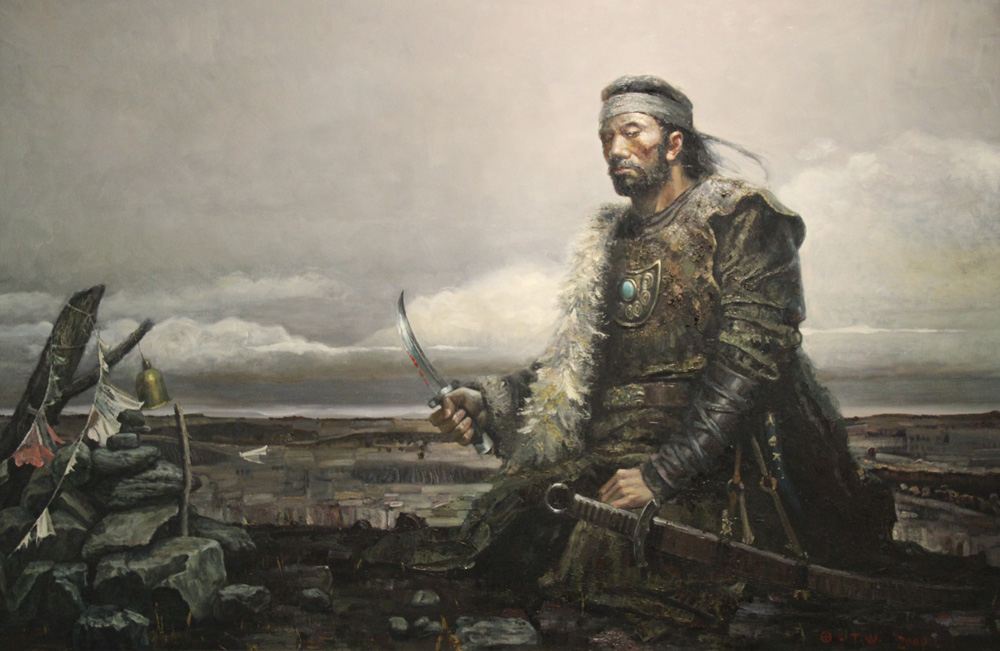Silk Road Centurion
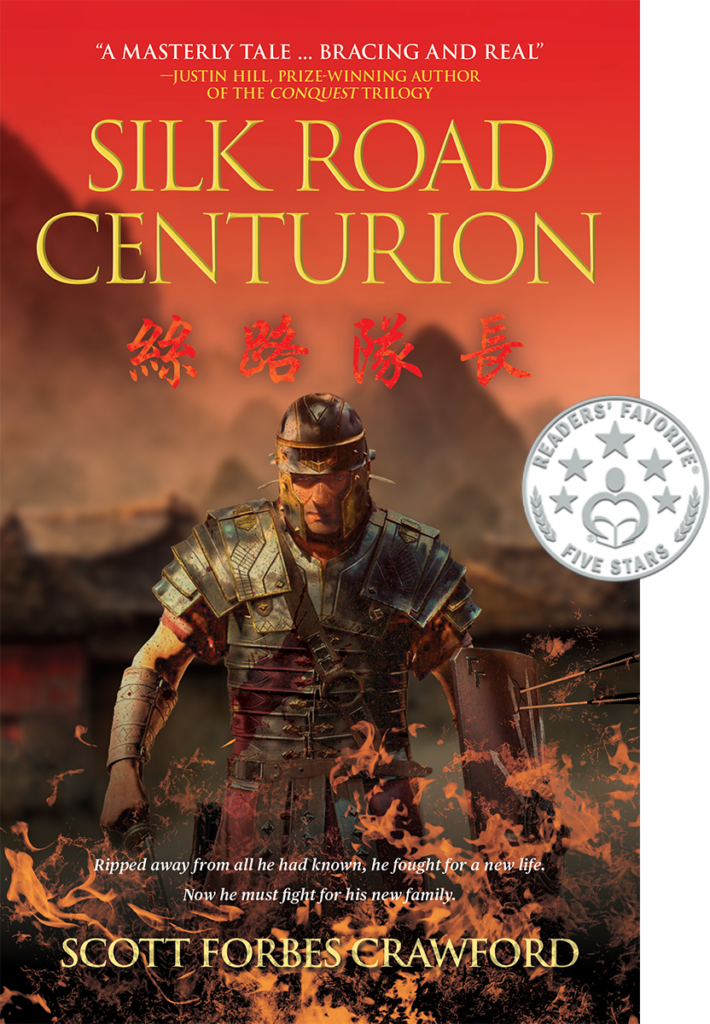
"Silk Road Centurion is a masterly tale that spans continents. With powerful prose, Crawford brings to life the challenges and struggles of one man to stay alive, and find meaning in a dangerous world. Bracing and real."
"A grand adventure I simply couldn’t put down. Crawford’s equally adept at stirring martial moments and calm ones that paint societies and the complex webs they weave over individuals. Compelling and powerful, it’s a testament to heroism, loyalty, and brotherhood. One of the finest things I read all year."
More Reviews
“Each phase of Manius’ journey was filled with masterful plots brimming with detail, and mind-steeped emotional turmoil… prepare for a breathtaking trek into the steppes and feel the wind as you gallop through the pages. 5 STARS”
– Review by Paul Bennett, Hoover Book Reviews
“The author is a highly skilled storyteller who unveils shocking plot developments as the novel ends, compelling the reader to invest his emotions with every twist and turn.”
– Review by Michael C. Anderson Ph.D., Mike Anderson’s Ancient History Blog
“The author is amazing at knowing when to take the right pauses and when to enforce some fast-paced action, giving the perfect rhythm to the narration… A historical novel of such rare beauty….”
– Review by Raven no Nest
“Historical fiction fans, this one is EXCELLENT… Good storyline, great characters, and lessons about that time period in history embedded throughout.”
– Review by Tabatha Shipley,
All the Right Reads
More about Silk Road Centurion
Characters
Manius Titinius
A centurion on campaign in the Near East, Manius is deadly in combat, though was never meant to be a soldier at all. He hails from an educated background and his curiosity and talent for languages prove invaluable throughout his adventures in the east. His period as a captive and as an unlikely resident in a Chinese village will test his limits as a Roman, a warrior, and a man.Ling Yu
Ling Yu is a feisty 8-year-old with dreams bigger than the hardscrabble village she’s born into. Perhaps more than any other villager, she becomes the teacher of Manius, instructing him in everything from how to feed himself properly to observing the rites of ancestor worship.Ox
The hulking farmer is Ling Yu’s widower father. Opposed from the first to Manius’ presence at the village, he proves a formidable adversary to the Roman’s adaptation in the community.Kang
A learned healer who will not suffer fools gladly, she guides Manius back to health. As the only literate member of the village, she also introduces him to Chinese history and philosophy, and helps him expand his understanding of the world.Tangur
The chieftain of the nomadic tribe who enslaved Manius, Tangur is a masterful warrior and ruthless leader – a foe Manius will need all his skills and daring to take on.Rahmeg
Tangur’s gentle, contemplative but cunning younger brother. Though talented at warfare, Rahmeg prefers to spend his time perfecting his flute-playing technique.Grandfather
Known to all as “Grandfather,” he is a plucky, twinkle-eyed village elder, the father of Ox and grandfather of Ling Yu. Haunted by the abduction of his wife by nomadic raiders decades ago, he savors the chance at vengeance when a clash with Manius’s captors looms.Historical Background
Set in 53-52 B.C., Silk Road Centurion immerses readers in three distinct societies: Roman, Chinese, and Xiongnu. If you would like to delve deeper into the history, note that I occasionally discuss my research methods and highlight key sources in my newsletter and in blog posts.
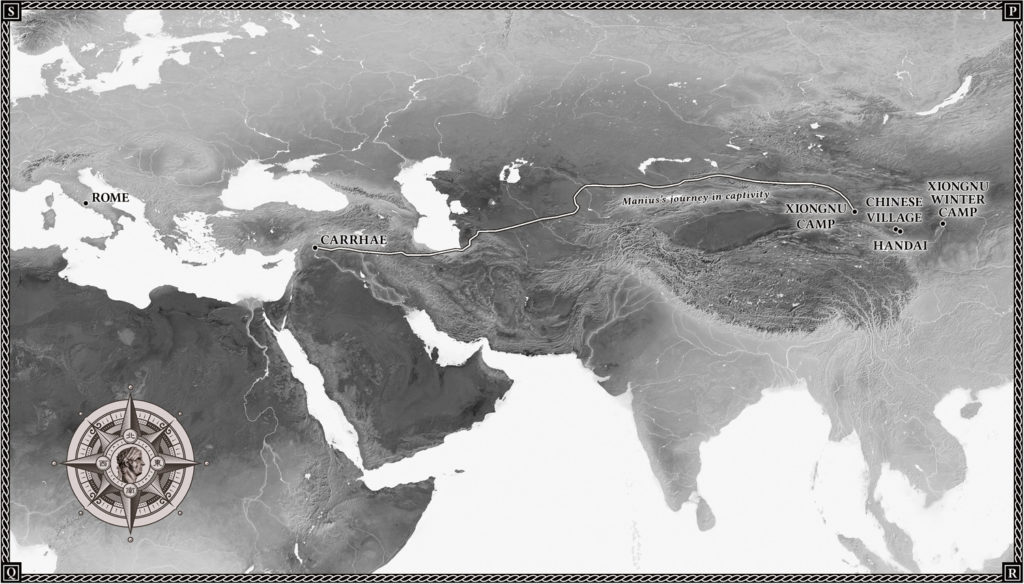
China
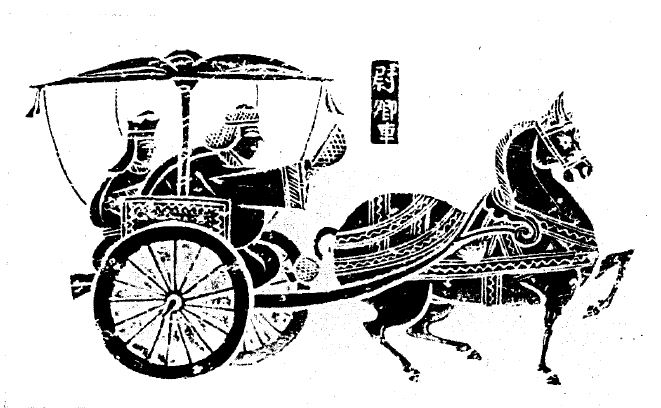
In 53 B.C. China was ruled by the Han dynasty. An era of massive progress, far-flung Chinese kingdoms further coalesced under Han rule following the brutal unification of the preceding Qin dynasty. A number of cultural institutions, such as Confucian philosophy, that have persisted into modern life, first gained traction during the Han dynasty.
Religion
A number of religious streams fed the spiritual needs of this time. The state religion linked the emperor with Heaven and imbued him with influence over the lives of his subjects, including the all-important yield of the annual harvest.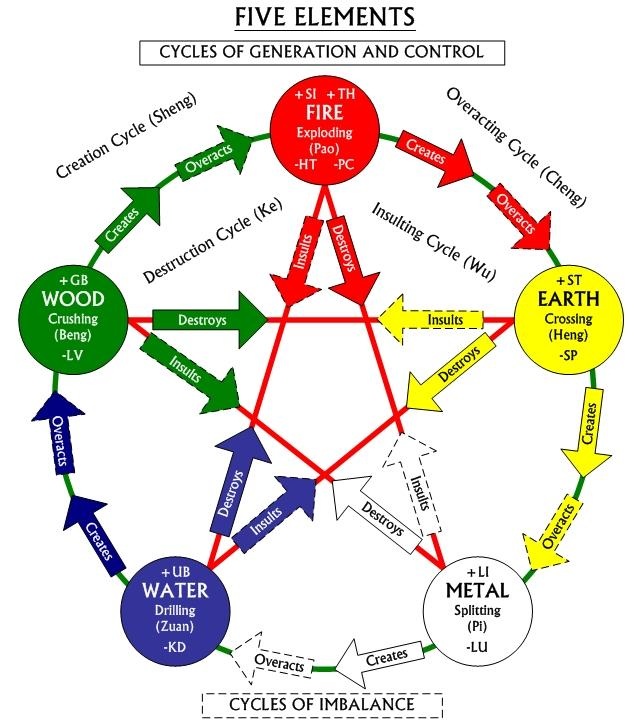
Silk Road Centurion portrays the Chinese system of Taoist beliefs, folk religion, and ancestor worship. Taoism seeks harmony with nature and an understanding of the forces of yin (the receptive, female principle) and yang (the active, male principle) in all things. Taoist belief also posits five elements (earth, fire, water, wood and metal) that constitute the physical universe and correspond with the seasons, parts of the body, colors, flavors, emotions, and much more.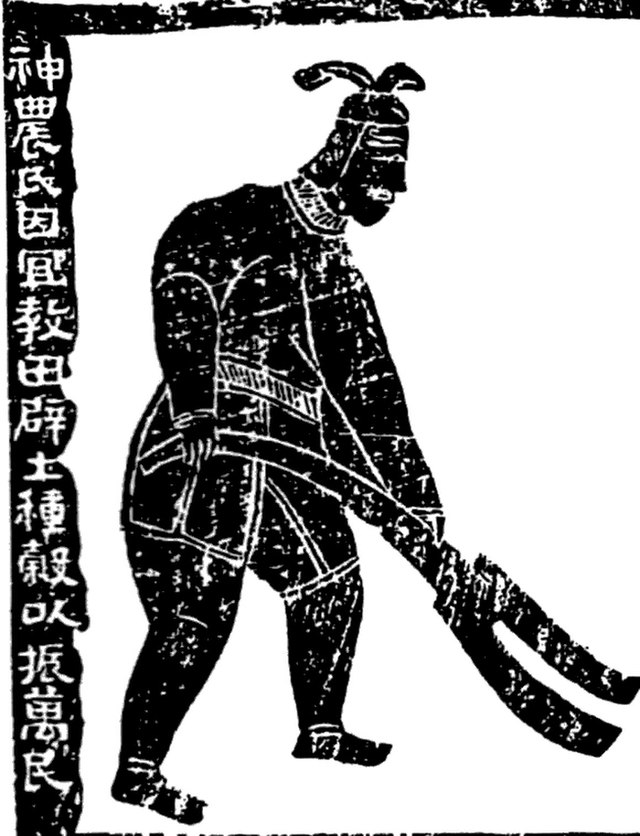
In the novel, the villagers observe folk beliefs connected largely with the success of their crops. They also make sacrifices to Shennong, “The Emperor of Five Grains,” to improve their harvests and thus the odds of survival.
Ancestor worship allowed Chinese to maintain a bond with those that had preceded them. Through offerings and prayers, the spirits of these ancestors might aid their living descendants and even keep evil forces at bay.
Medicine
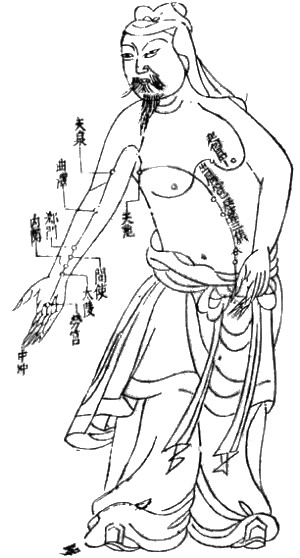 Focusing on the body as a totality rather than a collection of related but separate systems, Chinese healers in the time of the novel sought to restore a patient’s underlying balance which could be disrupted by wounds or illness, helping the body to heal itself.
Treatments included herbal medications, massage, breath control and acupuncture. These would maintain the body’s flow of qi (life energy) and the positive interaction of yin and yang.
Roman medicine worked partly on effective practices and partly superstition, and so when Manius undergoes Chinese treatments under Kang’s care there’s much for him to learn (and some nasty-tasting medicine to choke down, too).
Focusing on the body as a totality rather than a collection of related but separate systems, Chinese healers in the time of the novel sought to restore a patient’s underlying balance which could be disrupted by wounds or illness, helping the body to heal itself.
Treatments included herbal medications, massage, breath control and acupuncture. These would maintain the body’s flow of qi (life energy) and the positive interaction of yin and yang.
Roman medicine worked partly on effective practices and partly superstition, and so when Manius undergoes Chinese treatments under Kang’s care there’s much for him to learn (and some nasty-tasting medicine to choke down, too). Rome
Religion
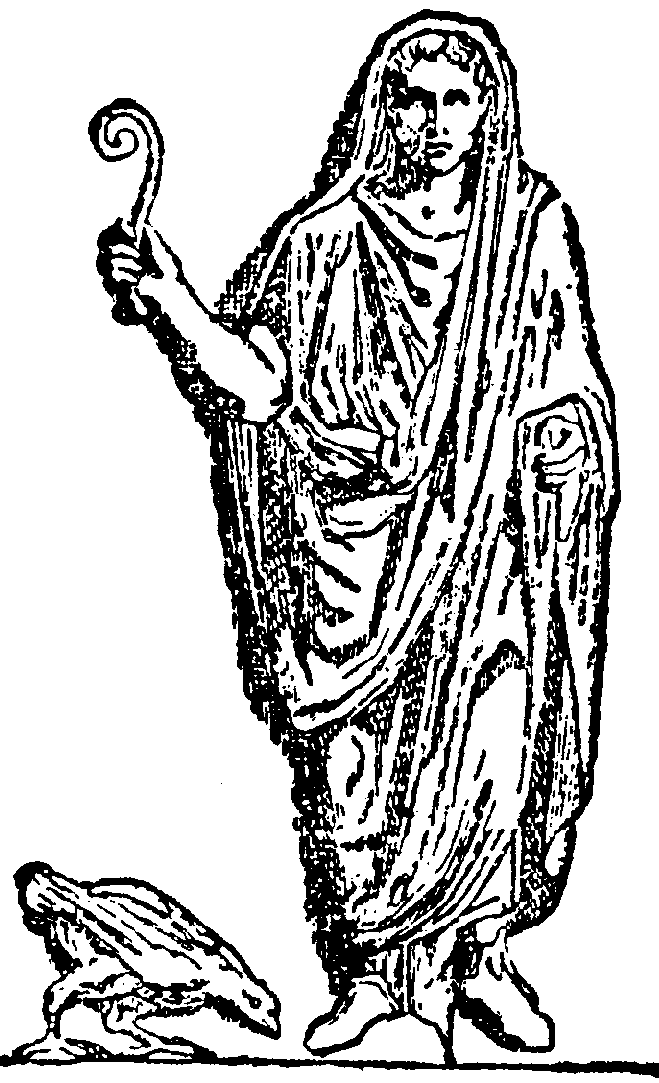 Rome primarily worshiped the Roman equivalents of the Greek pantheon, such as Jupiter, Apollo, and Minerva, as well as countless other deities and spirits. Mars, god of war, tremendously influenced the lives of soldiers. Fortuna, goddess of luck, is the deity Manius embraces as a patroness.
Rome primarily worshiped the Roman equivalents of the Greek pantheon, such as Jupiter, Apollo, and Minerva, as well as countless other deities and spirits. Mars, god of war, tremendously influenced the lives of soldiers. Fortuna, goddess of luck, is the deity Manius embraces as a patroness.
Romans sought signs and portents indicating whether a particular course of action enjoyed the gods’ blessing. Through the taking of auspices (observing the flight of birds) by an augur or a haruspex examining the entrails of animals, the gods might communicate their favor. Before a battle, a priest would try to surmise the gods’ view by feeding consecrated cake to chickens. If the birds ate, it heralded victory ahead. If the chickens refused the cake, disaster might await.
Military Life and Warfare
Its highly trained and dedicated soldiers made Rome a military juggernaut. Legionaries served for 25 years. After swearing an oath and completing basic training which emphasized marching, formation, weapons skills and discipline, soldiers took their posts in the legions. Legionaries were prohibited from marrying while under arms.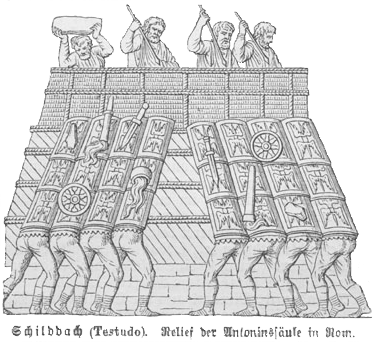 The Roman doctrine of warfare called for battle at close quarters, with soldiers fighting primarily as swordsmen “coming to grips” with their foes. In battle legionaries were capable of fighting both individually and as part of a unit, making each soldier a force on the battlefield. Roman armies often took on enemies of greater number and won through superior discipline and training. Yet mounted archers posed a distinct danger to the Romans, as Manius quickly learns.
The Roman doctrine of warfare called for battle at close quarters, with soldiers fighting primarily as swordsmen “coming to grips” with their foes. In battle legionaries were capable of fighting both individually and as part of a unit, making each soldier a force on the battlefield. Roman armies often took on enemies of greater number and won through superior discipline and training. Yet mounted archers posed a distinct danger to the Romans, as Manius quickly learns. The Xiongnu
Nomadism
The Central Asian steppe held no pity. Offering some of the most extreme weather on Earth and few resources, only the most resilient could survive it. As pastoralists, Central Asian tribes spent their lives on the move, seeking pasturage for their horses and livestock, defending those pastures from rivals, and occasionally raiding and trading with other nomads and settled societies.The harsh steppe environment and arduous lifestyle made the nomads uncommonly tough – and a terrifying adversary to Manius and his newfound Chinese comrades.
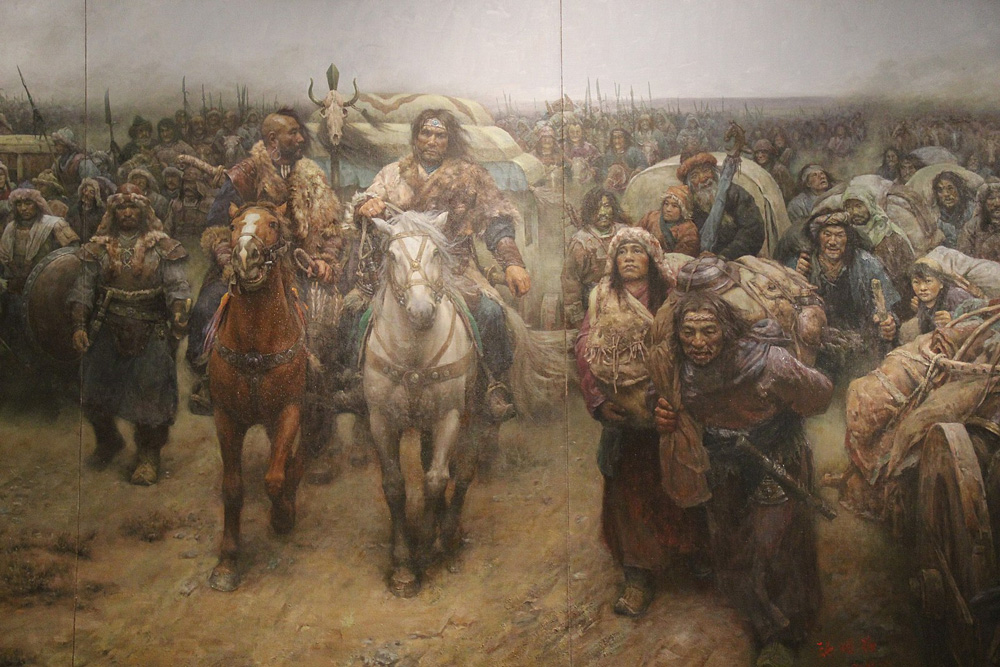
Religion
With lives spent wandering trackless plains beneath an unbroken sky, it is little wonder the Xiongnu worshiped Tengri, the sky god. Shamans communed with Tengri and other gods and spirits, providing a conduit between Earth and Heaven. Enemies felled in battle were condemned to serve their killers as slaves in the afterlife.
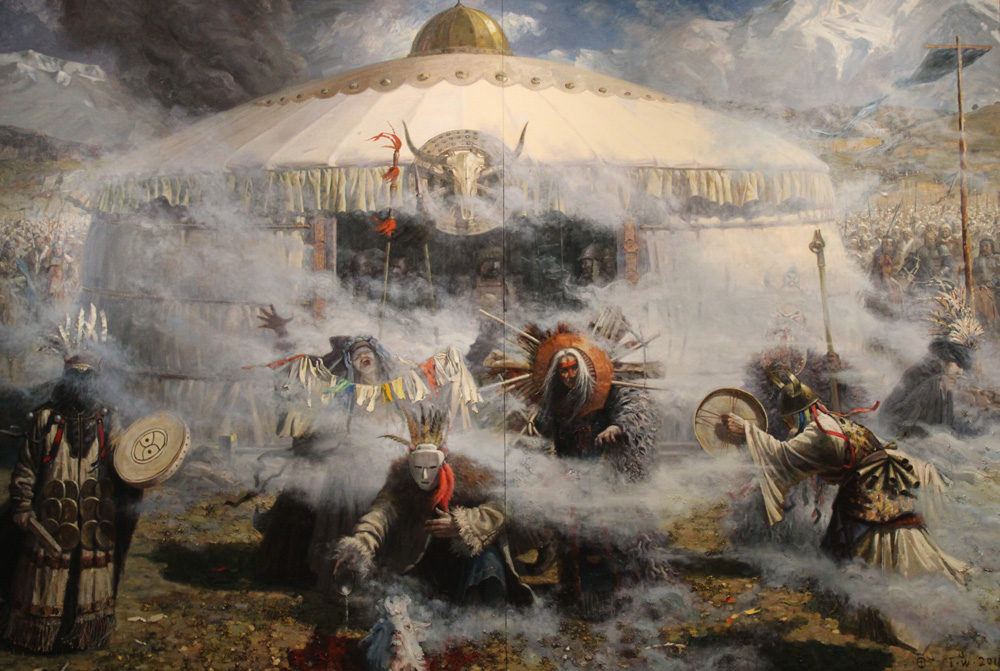
Warfare
The warfare practiced by steppe nomads differed drastically from the Romans of that era. Their lives revolved around their mounts and this relationship extended to the nomadic style of warfare. The combination of their finely honed archery skills with the finest horsemanship known to the world made the nomads a tricky opponent, able to dash up to a foe, let loose a volley of arrows, and even fire while retreating (what has come to be known as the “Parthian shot” after its use at the Battle of Carrhae).